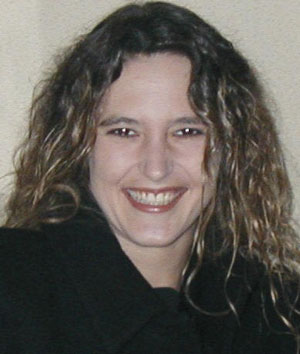Dissertation Earns New CJ Prof Gold Medal
 |
CJ professor Jennifer Schulenberg |
A new assistant professor in the College of Criminal Justice
is a gold medal recipient—not of the Olympic kind,
but one that is of as much importance in the Canadian academic
world.
Jennifer Schulenberg, a dual citizen of Canada and Switzerland
who began teaching at SHSU during the second summer session,
was awarded one of the Governor-General’s
Gold Medals for outstanding scholarship for the 2004-2005 year.
The national award is given by the Office of the Governor-General (who represents
the Queen of England in Canada) to a maximum of 15 recipients a year, though
the number given for last year won’t be released until around Christmas.
“It’s the highest honor you can get as an academic coming out of
a university.
What the gold medal represents is the top student that graduated in that calendar
year in all disciplines from that university,” Schulenberg said. “(It’s
given for being) upstanding of the highest distinction, essentially, not just
in grades, but in community service, in publications, teaching and every aspect
of academic work on top of the research being of public interest and having public
significance for the country.”
Schulenberg was selected for the award due largely in part to her doctoral dissertation
for the University of Waterloo in Ontario, which looked at the use of police
decision-making with youth offenders in Canada.
“
We don’t have a whole lot of literature in Canada that speaks to this area;
we rely a lot on the literature from the United States,” she said. “In
many ways the societies are parallel, and we have a lot of cultural icons that
we share, including our institutions of justice.
“
The biggest finding of the study was that the literature of the United States
is not necessarily applicable within the Canadian context—even though we
have similar policing structures, even though we have similar-sized communities,
even though we have youth gangs, even though we have all these other things that
are in the demographics for the United States studies—the findings were
different.
Other findings include the tendency for Canadian police officers to use their
own discretion in whether to arrest a youth, often choosing an informal action
instead of arresting, as well as a “revolving door syndrome” in youth
being brought to court for minor offenses, and a Canadian version of racial profiling,
which Schulenberg said, “nobody wanted to hear.
“
Here in the United States, a disproportionate number of African Americans, for
example, are arrested or detained or incarcerated. In Canada, we don’t
have a (racial profiling) problem with African Americans, we have a (racial profiling)
problem with our indigenous aboriginal population,” she said. “So
they are in the area of three times more likely to get arrested, an aboriginal
youth, for any offense, regardless of the offense, regardless of their prior
record, regardless of where they are.”
The research, done by sampling what would be the equivalent of five to 10 agencies
within each U.S. state as well as five to 10 officers within each agency, has
been called “unprecedented,” “a bold effort” and “a
landmark study” by a series of independent reviewers and those on the gold
medal examining committee.
After receiving her doctorate in sociology, a degree many criminologists receive
in Canada because of their lack of criminal justice departments, she received
a postdoctoral fellow at the University of Toronto Centre of Criminology.
“
It’s a competitive process, and 65 percent of the applicants don’t
make it, and then 30 percent (receive the fellow, though) it depends on how much
money the federal government has coughed up that year,” she said.
After entering the job market, she ran into an individual at a criminology meeting
in Nashville who asked her if she had applied to SHSU. Though she was not familiar
with the university at that time, she turned in a late application, and is now
very happy with her decision to do so, she said.
“Once I got here in January, I fell in love with the place; it’s
just incredible,” she said. “The resources, the faculty, the environment,
the students; it’s sort of been everything I wanted, a balance between
teaching and research and the infrastructure to support both.”
—END—
SHSU Media Contact: Jennifer
Gauntt
July 14, 2005
Please send comments, corrections, news tips to Today@Sam.edu.
|


